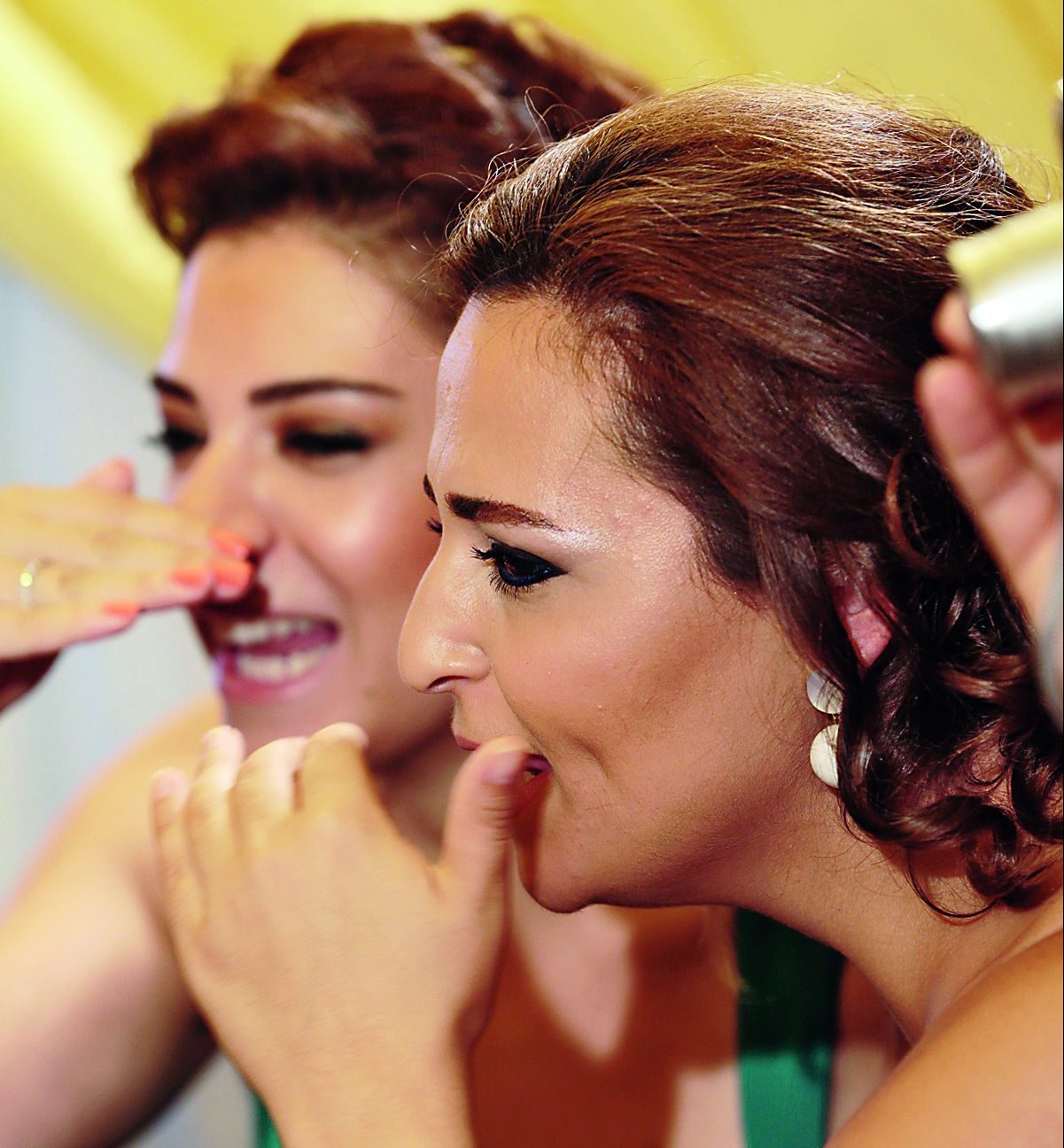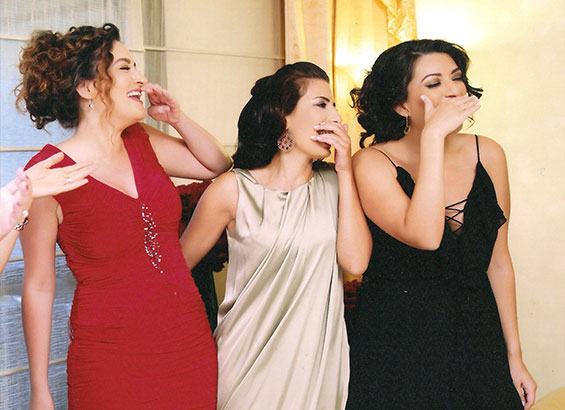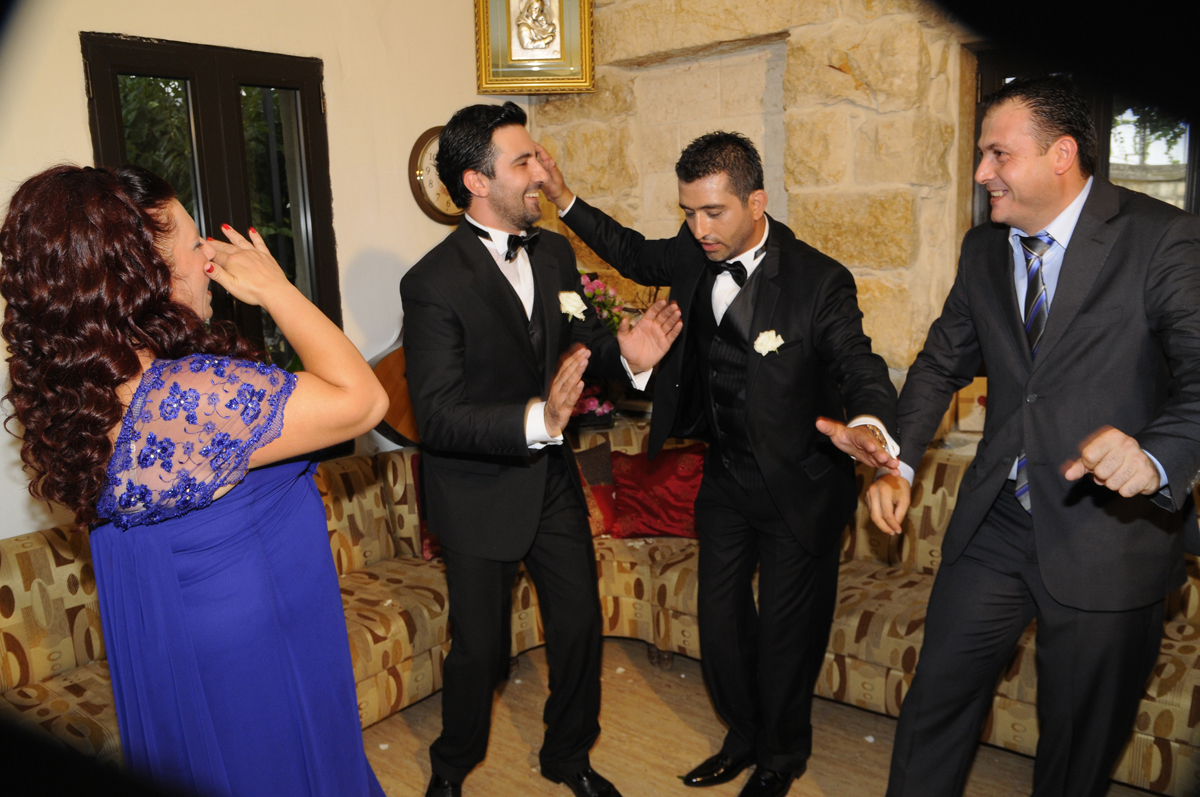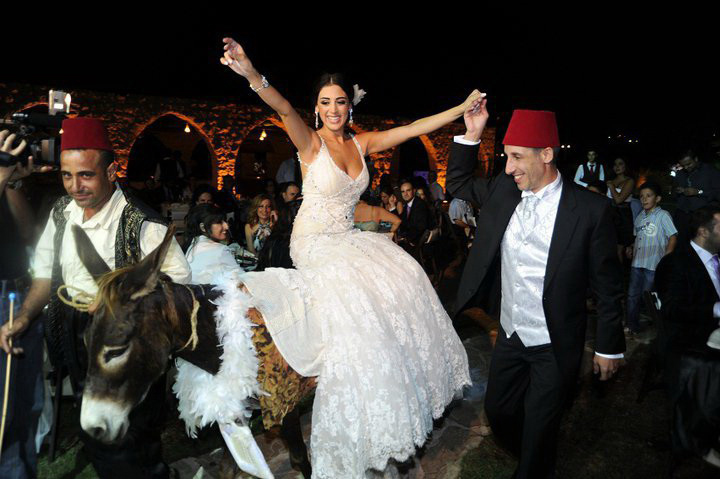For happier times in life, those spent with family and friends, Lebanon celebrates with the traditional zalghouta — a unique way to express and share the joy!

Also known as the act of ululating, the zalghouta (otherwise known as zaghroota) is practiced all over the Middle East and in some parts of Africa. An ululation is a high-pitched tongue trill, a physical skill that involves the throat and tongue. It is a distinct ability as not many people can hit such high notes.
 It is women who mainly use this loud expression to celebrate a joyful event, such as a wedding or a family member getting an important degree.
It is women who mainly use this loud expression to celebrate a joyful event, such as a wedding or a family member getting an important degree.
 What makes the Lebanese zalghouta different from others is that it is not limited to the act of ululating. Instead, there are a few verses chanted before the loud cry. During weddings, these verses usually compliment the bride and groom, highlighting their beauty, family and good manners.
What makes the Lebanese zalghouta different from others is that it is not limited to the act of ululating. Instead, there are a few verses chanted before the loud cry. During weddings, these verses usually compliment the bride and groom, highlighting their beauty, family and good manners.
How does one learn the zalghouta?
You don’t; zalghouta is improvised and tailored to the specific occasion it is celebrating. Just like zajal (a traditional kind of poetry that is mainly improvised), it requires wittiness and inventiveness. In the past, weddings often included a contest between the bride and groom’s parties, each showing off their oratory skills.
 Zalghouta today
Zalghouta today
Today, there are very few who still practice the art of zalghouta. However, many women have recorded and memorized verses that would fit any occasion, which they commonly recite during weddings. The ululation that follows the verse is still practiced and can be recorded or live.
Ululation can also be used to express irony, for instance when you finally receive something you have been waiting for. It is the Lebanese equivalent of the hallelujah.
Where to listen to zalghouta
Since zalghouta is mostly improvised, we cannot give you a list of where to go to hear it nor where to go to learn how to ululate. What we can say for sure is that you’ll recognize it as soon as you hear it — most probably at the next wedding you attend!
Loading
